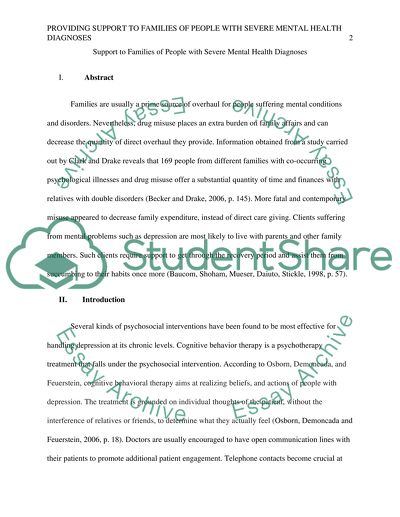Cite this document
(“Support to families with severe mental health disorders Research Paper”, n.d.)
Retrieved from https://studentshare.org/health-sciences-medicine/1396433-research-project
Retrieved from https://studentshare.org/health-sciences-medicine/1396433-research-project
(Support to Families With Severe Mental Health Disorders Research Paper)
https://studentshare.org/health-sciences-medicine/1396433-research-project.
https://studentshare.org/health-sciences-medicine/1396433-research-project.
“Support to Families With Severe Mental Health Disorders Research Paper”, n.d. https://studentshare.org/health-sciences-medicine/1396433-research-project.


